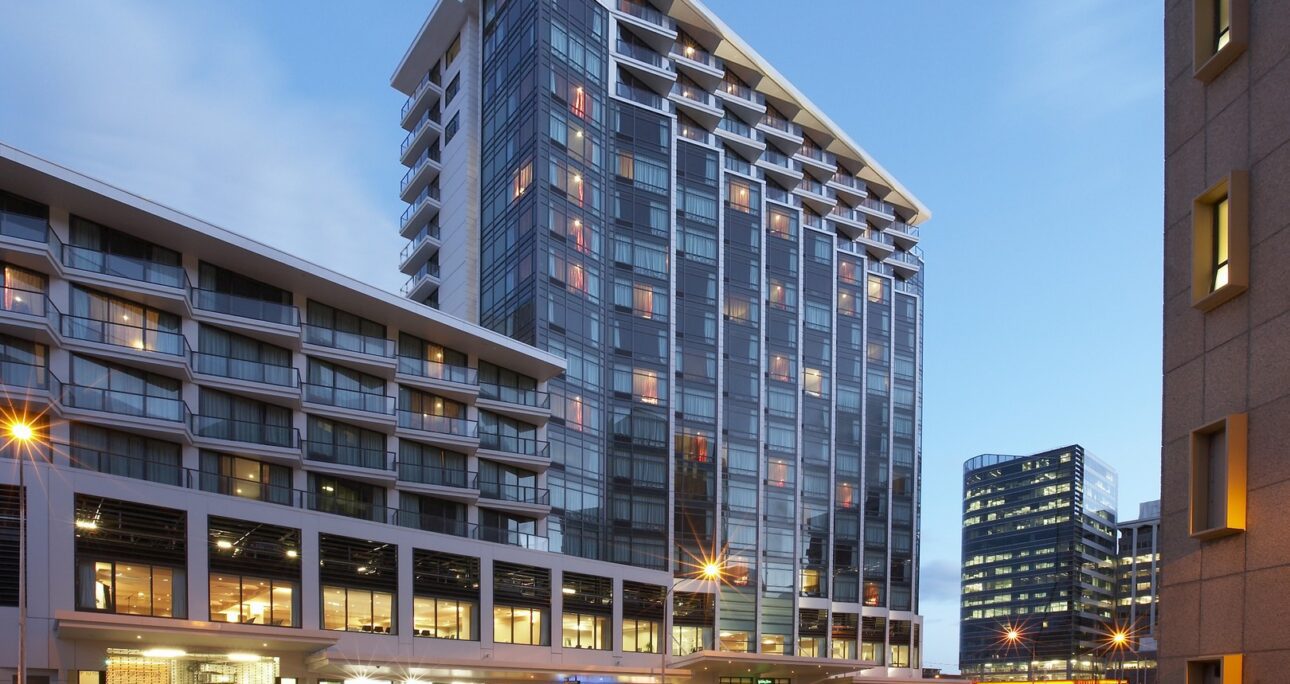Auckland property developer Nigel McKenna is spreading his wings with a proposed $150 million hotel, retail, office and residential apartment project in Wellington’s CBD.
And he is looking for investors for the first stage of the development, a $50m 170-room hotel.
The project is a departure from McKenna’s usual developments – geographically and in scope.
Although he started his career with an office development in Wellington, he quickly followed the money to Auckland where his company Melview Developments established itself as one of the country’s biggest builders of high density inner city housing.
In the last four years the company has developed nearly 1000 residential units, including a $100m leasehold apartment complex on the site of the former gas works opposite Victoria Park and another $35m project at Viaduct Harbour.
McKenna said the company would continue to develop Auckland residential property, but the Wellington development was part of his plan to operate nationally.
The hotel will be built on a vacant Featherston St site in the heart of the CBD, close to the Beehive and Wellington Railway Station.
Investors can buy rooms on the unit titles and lease them back to the hotel operator, Six Continents Hotels, which will run it as part of its Holiday Inn chain.
The rooms are being sold fully furnished from $166,000 to $219,000 depending on size (32-36sq m) and outlook, with most having views over parliament buildings towards the western hills or across the harbor.
Under the leases, which will run for 10 years with a right of renewal for a further 10 years, the hotel operator will meet all costs associated with running the hotel and renting the rooms, including Outgoings such as maintenance.
In return it will collect the hotel income the rooms generate and pay their investor-owners a guaranteed rental of 8% of their purchase price for the first five years.
After five years the rental income will be determined by each room’s occupancy rate and tariff, which will in turn be determined by the buoyancy of the Wellington hotel market.
And as with most property investments, the interest portion of any mortgage used to finance the purchase of rooms can be offset against the income it earns for tax purposes.
But such rewards do not come without risks. Hotel sale and lease back arrangements were poplar investments a few years ago, particularly in Auckland during the euphoria that followed the America’s Cup victory and the tourist boom that was expected to provide. However, some of these investments have not met expectations.
Most notably are the high profile Metropolis development in the heart of Auckland’s CBD and the Spencer on Byron hotel at Takapuna.
Rooms in both hotels were sold to investors on sale and lease back arrangements which provided guaranteed rentals for fixed terms. But occupancy rates fell well short of initial projections.
Occupancy rates at the Metropolis were so low, Ascott, the hotel chain which operates it, had to dig deep to top up rental returns to the minimum level until the rental guarantee period expired at the end of last year, forcing the hotel to run at a loss.
And it warned some owners could face a bill from the hotel instead of a rent cheque each month, if a room’s income failed to cover its share of the hotel’s expenses.
Because this severely reduced investors’ yields, it also negatively impacted on the rooms’ capital values, and many investors who bailed when the going got tough were forced to sell at a loss. At Spencer on Byron the situation is worse because the hotel’s operator, Castle Group, failed to fulfill their leases’ original terms, invoking a “force majeure” clause to chop the rent it pays investors in half, from 8% to 4%.
McKenna acknowledged the concern the Auckland situation had created for investors, but said they could be reassured by several aspects of the Wellington development.
The first was the strength of the hotel operator. British-based Six Continents is one of the world’s largest hotel companies, managing more than half a million guest rooms in 3200 hotels in 100 countries. It operates the Crowne Plaza, Inter-Continental, Parkroyal, Holiday Inn and Centra chains. The second was the reputation of his development company, which in the highly competitive Auckland market had established a reputation as a solid operator.
This meant both companies had the resources to meet their obligations, McKenna said.
But the long term value of the investment would ultimately be determined by the market rules of supply and demand. On the supply side, other operators were believed to have been eyeing the capital and last month the Hilton chain announced it would build a new hotel on Queens Wharf.
And downturns following the Asian financial crisis and September 11 attacks had shown that tourist numbers could be unexpectedly influenced by world events over which New Zealand had no control, he said.
By Greg Ninness, Sunday Star Times




